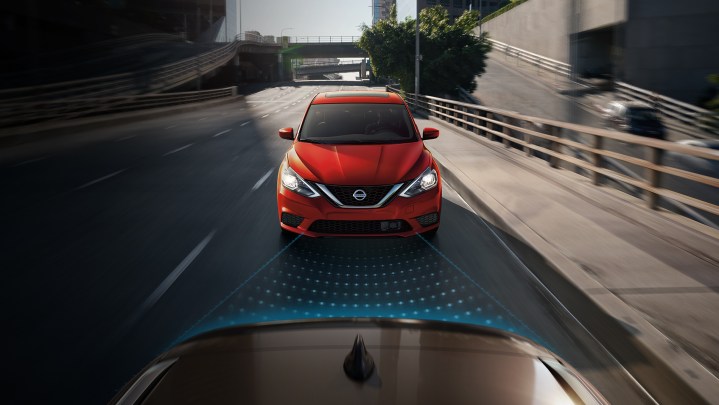
In the future, if your car crashes it could automatically call the emergency services for you and let family and friends know that you’re in trouble, thanks to a new Internet of Things (IoT) service from Mojio and Bosch debuting at CES 2019.
More CES 2019 coverage
- Toyota rolls out an updated autonomous car prototype for CES 2019
- TomTom debuts end-to-end autonomous driving system at CES 2019
- Nissan’s ‘invisible-to-visible’ tech makes driving similar to a video game
Mojio, known for its connected car platform, has partnered with electronics giant Bosch to create the new crash detection and emergency call (eCall) solution for your car. The concept is that you can use a plug-and-play device which connects to your vehicle’s OBD-II port to access information about your vehicle and monitor its status through an app. This means that you can get some of the features of a high-end autonomous vehicle system on an older car.
The latest update to the solution is the integration of two features: a crash detection algorithm and the emergency service call. The algorithm uses accelerometer sensor data from the OBD-II device and should be able to sense and measure a crash in real time, sending an alert to the Mojio cloud platform and triggering an emergency response alert. A useful feature of the system is that it not only calls for help from police or ambulance services, it also records key information about the crash like the exact time at which it occurs, the location of the vehicle, and the severity of the incident. This should be reassuring for folks who drive in low-traffic areas and who are worried about being stranded in the case of an accident.
As well as calling for local emergency services when a crash occurs, the eCall system will also send out an SMS to designated emergency contacts such as friends or family members to let them know what has happened.
Kenny Hawk, CEO of Mojio, believes that this solution will improve safety for drivers: “We’re excited to work side-by-side with Bosch to help save lives by creating a safer and smarter global driving community, enabled by IoT,” he said in a statement. Mike Mansuetti, president of Bosch in North America, agreed that safety was a key area where IoT can help: “Enhanced driver safety, and the peace-of-mind that comes with it, will be a powerful benefit of connected mobility,” he said.
The service will cost around $10 per month and the technology can be used in any vehicle, regardless of its age.



